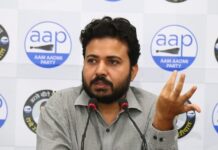New Delhi, The madrasas (Islamic seminaries) and the education imparted in them must be modernised to make it sustainable, US-based Muslim philanthropist Frank Islam said here on Tuesday.
“The clergy that resists the modern education has his own interests. (But) They must understand that the education being given there cannot provide any jobs to students,” he said during an interaction with mediapersons here.
Known for funding higher education in India, Islam however said that he has no plans to fund ay madrasas here.
Asked if he has any plans to fund or establish a “model madrasa” where religious education can be gelled with contemporary learnings, he said: “As of now I have not thought about it. But I think a few people here in India including Lt Gen (retd) Zameeruddin Shah are working on this concept.”
He shared a few ideas regarding the educational empowerment of Muslims.
“Ensure a strong focus on literacy development in the rural areas and for females, develop technical and entrepreneurial skills, place an increased emphasis on higher education, make connections and build coalitions both here in India and with Muslims around the world,” he said.
He stressed on developing technical and entrepreneurial skills.
“Around the world, we are finding that technological advances are occurring so rapidly that basic education and literacy … are insufficient for success in life. This is true in India as well. To be fully empowered, Muslims must have the technical and entrepreneurial skills to compete and also to create their own opportunities in the 21st century workforce,” Islam said.
On building coalitions inside the country as well as with Muslims around the world, Islam said that no government can alone achieve the goal of educating all the people.
“No group can do it alone. But together we can. We need to reach out to others who share our cause. If they are brought together, we will be able to create the level and type of educational empowerment that we need,” he said.









